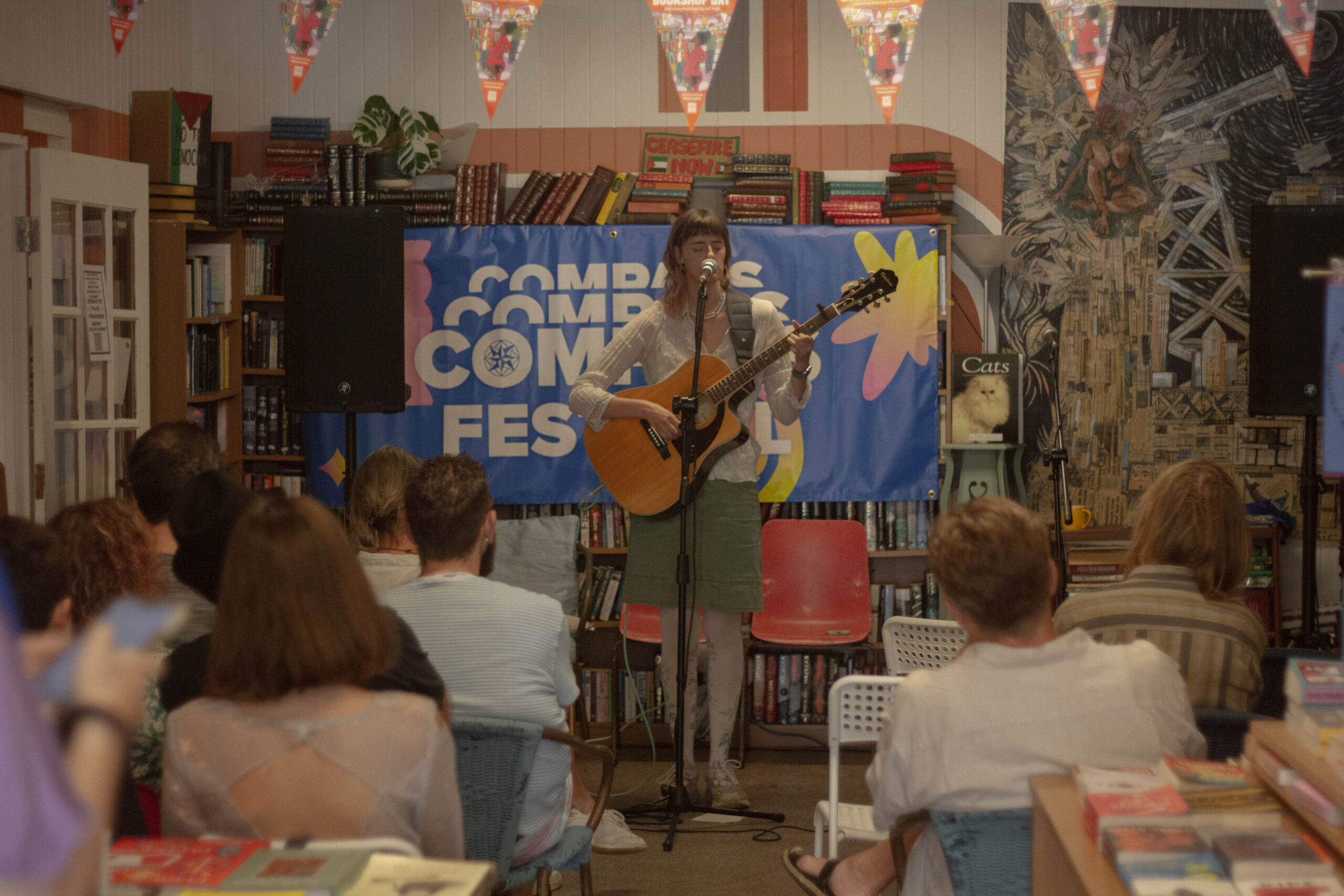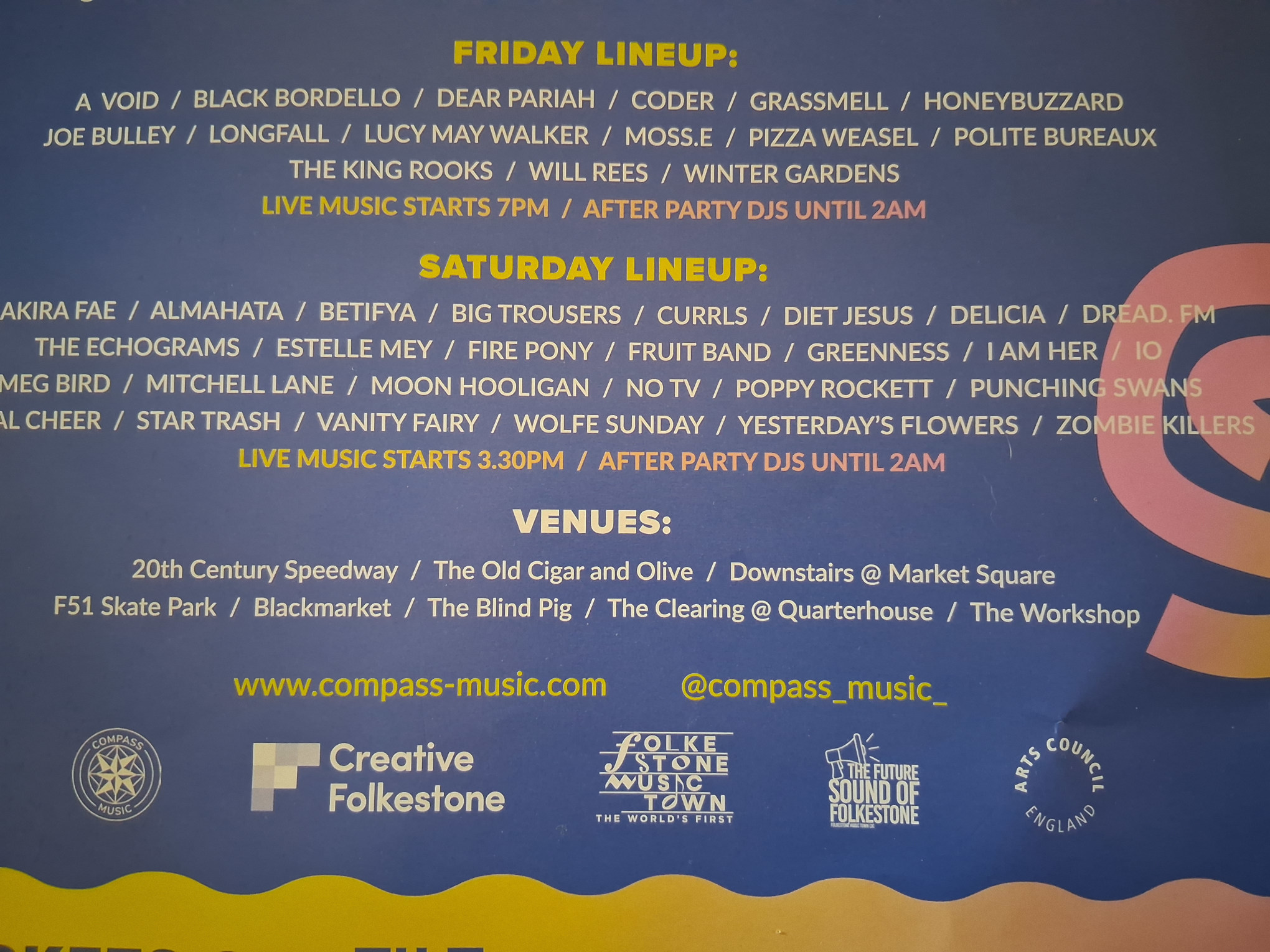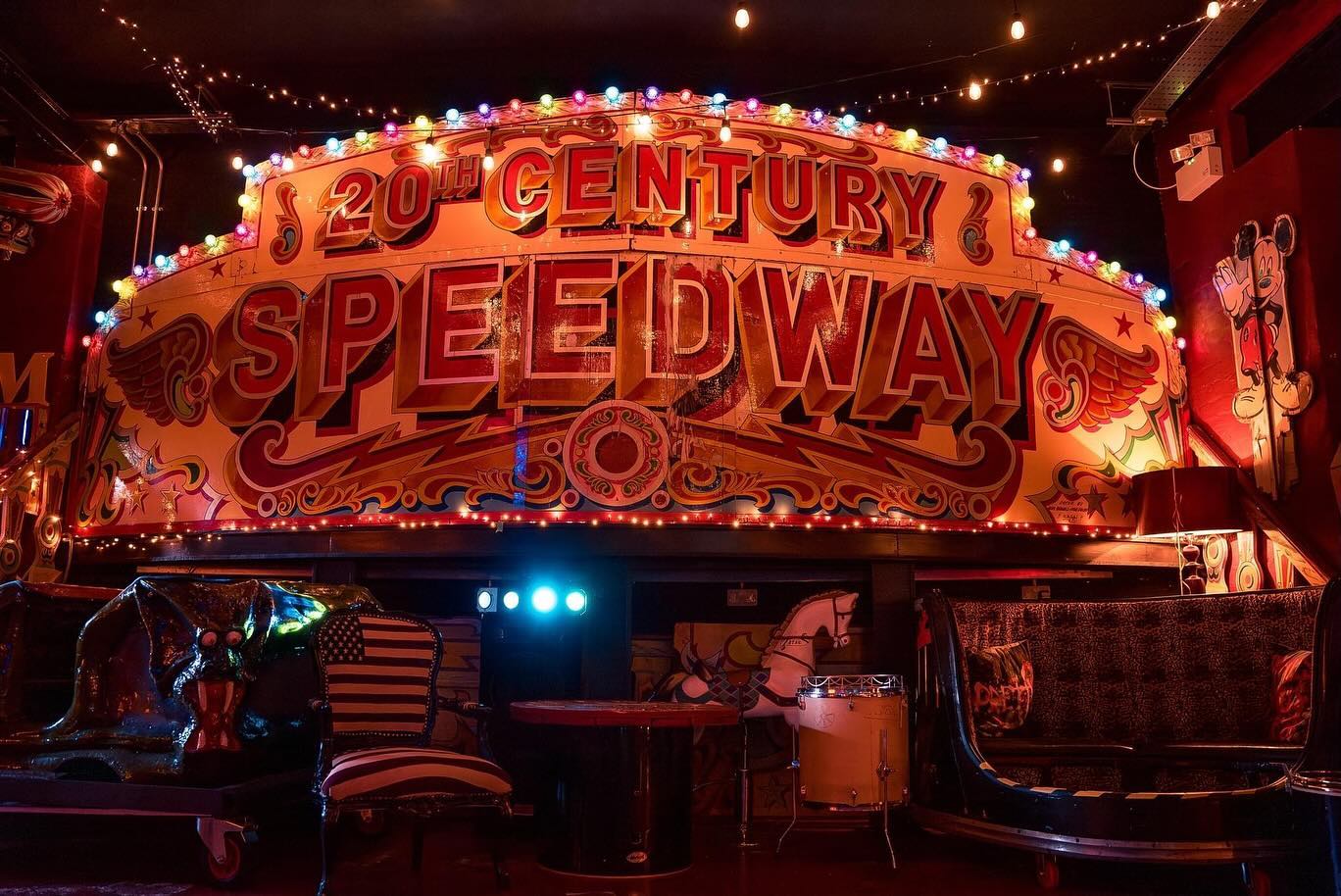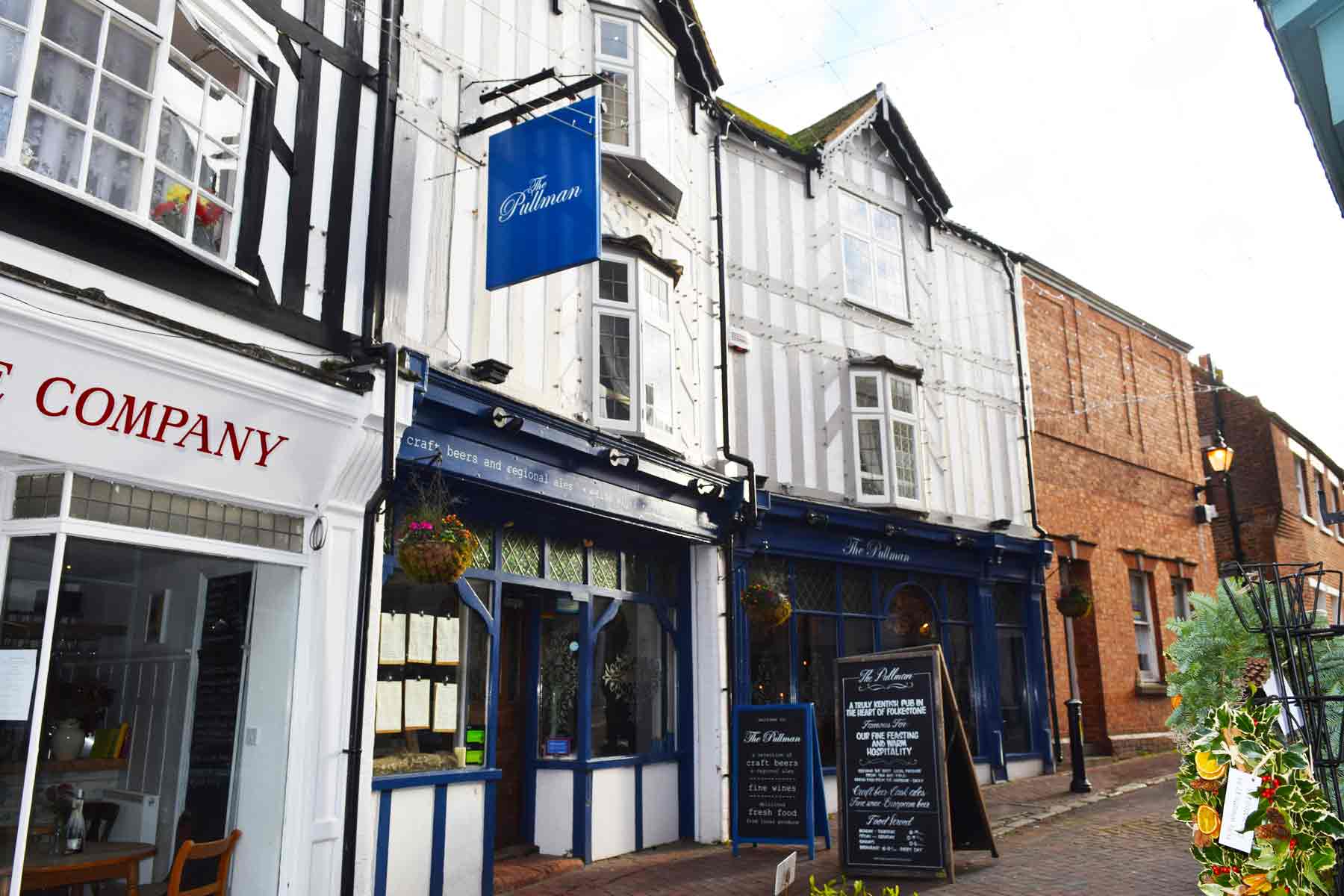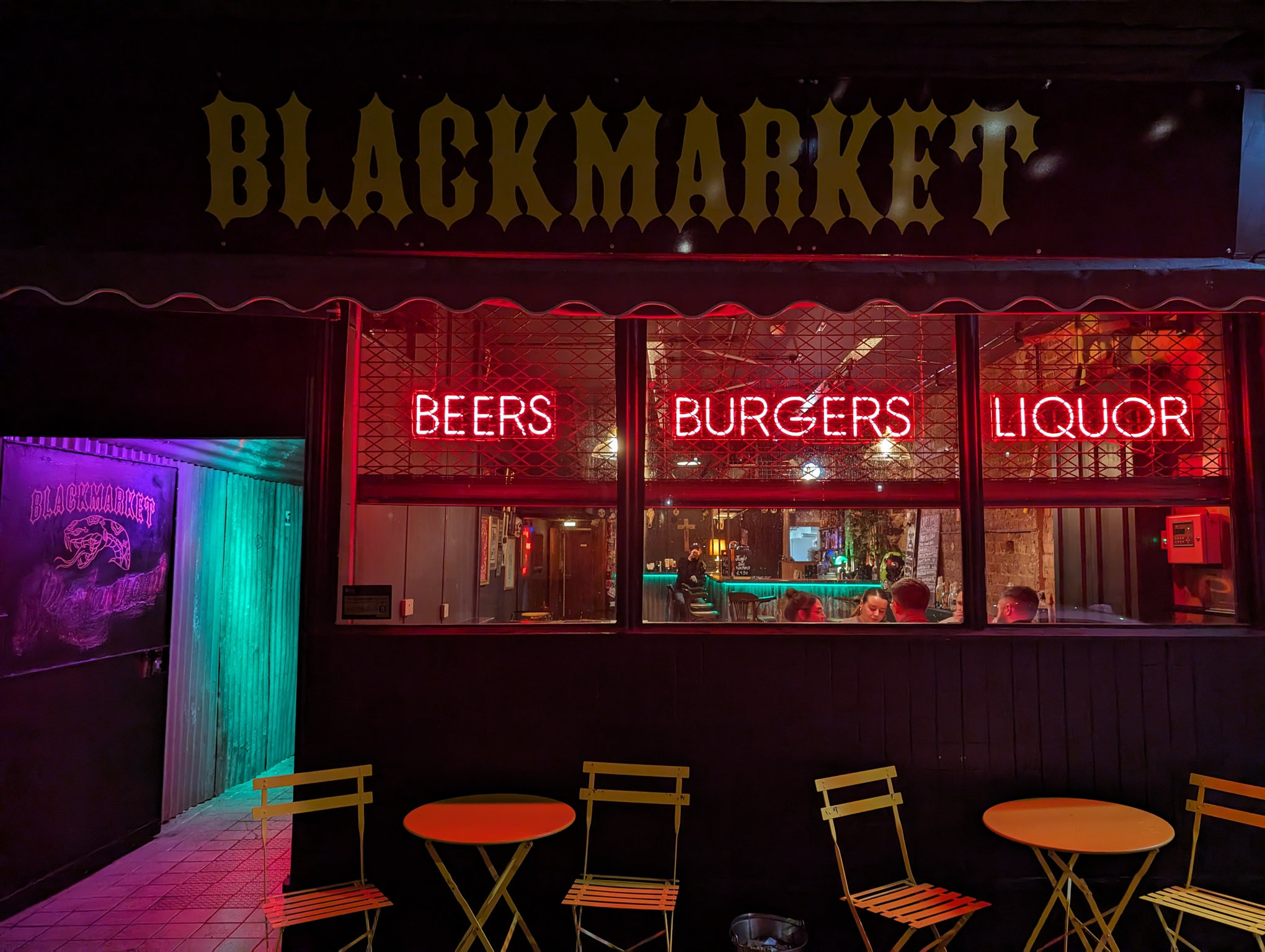Music
compass festival – the biggest alternative music festival in kent
Compass Festival is returning for its second year. This year there are over 40 acts, playing at 8 independent venues and is the biggest alternative music festival in Kent. Organiser Geraldine Zanaska spoke to Folkelife about the origins and evolution of the festival.
“There’s a list of reasons of how the Compass Festival came about. One is that I have a bucket list, and a life-long ambition to have my own music festival. Concerts and festivals are my happy place. During my career in the music industry, I’ve been to many showcase festivals such as this.
“They’re all about new music, and would have both the normal audience, and then also music promoters coming to see new talent. There isn’t a specific headliner band but a series of short sets by many different acts. They are usually set in cities or towns where you can have multi-venues, multi-genre. The idea is that you dip in and out of many different mini-gigs.”
riot gulll and new wave
“With my previous initiatives of Riot Gulll and New Wave, I have always championed female-fronted bands, and also bands from around the south coast. And that’s what we’re doing here. There are gender-diverse bands, and of the 45 bands on show, 41 are from Kent and the south coast, and 14 are from Folkestone itself.”
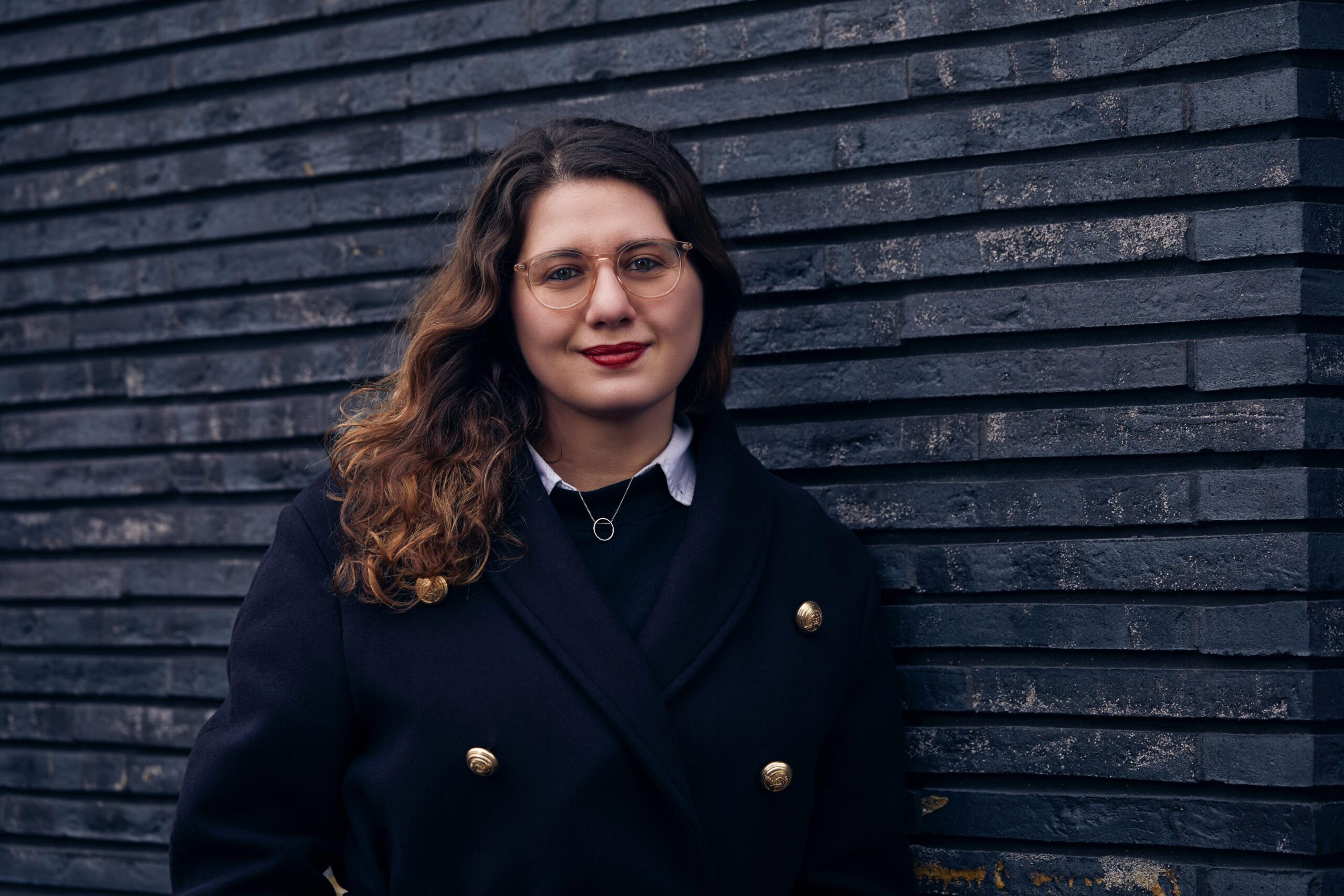
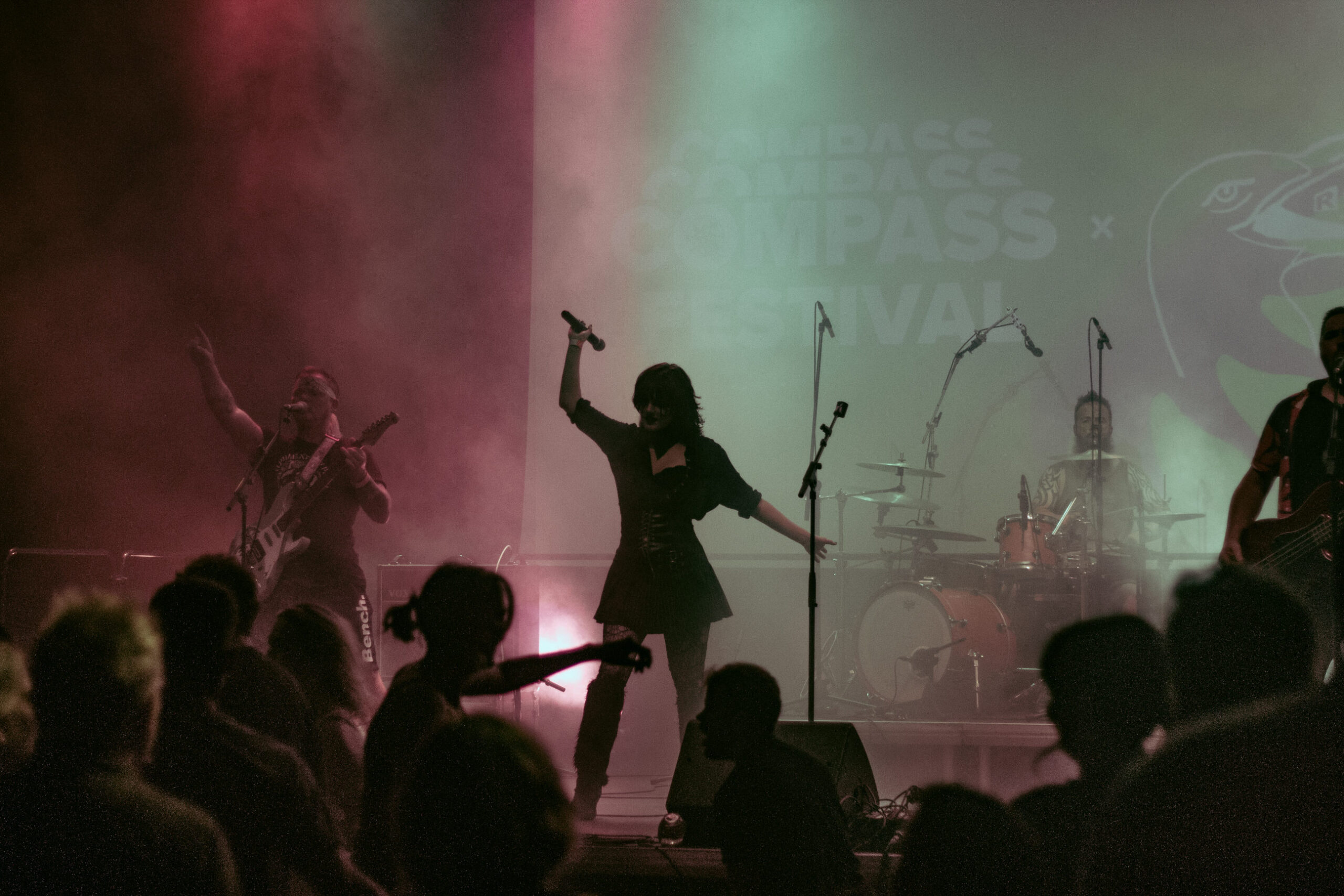
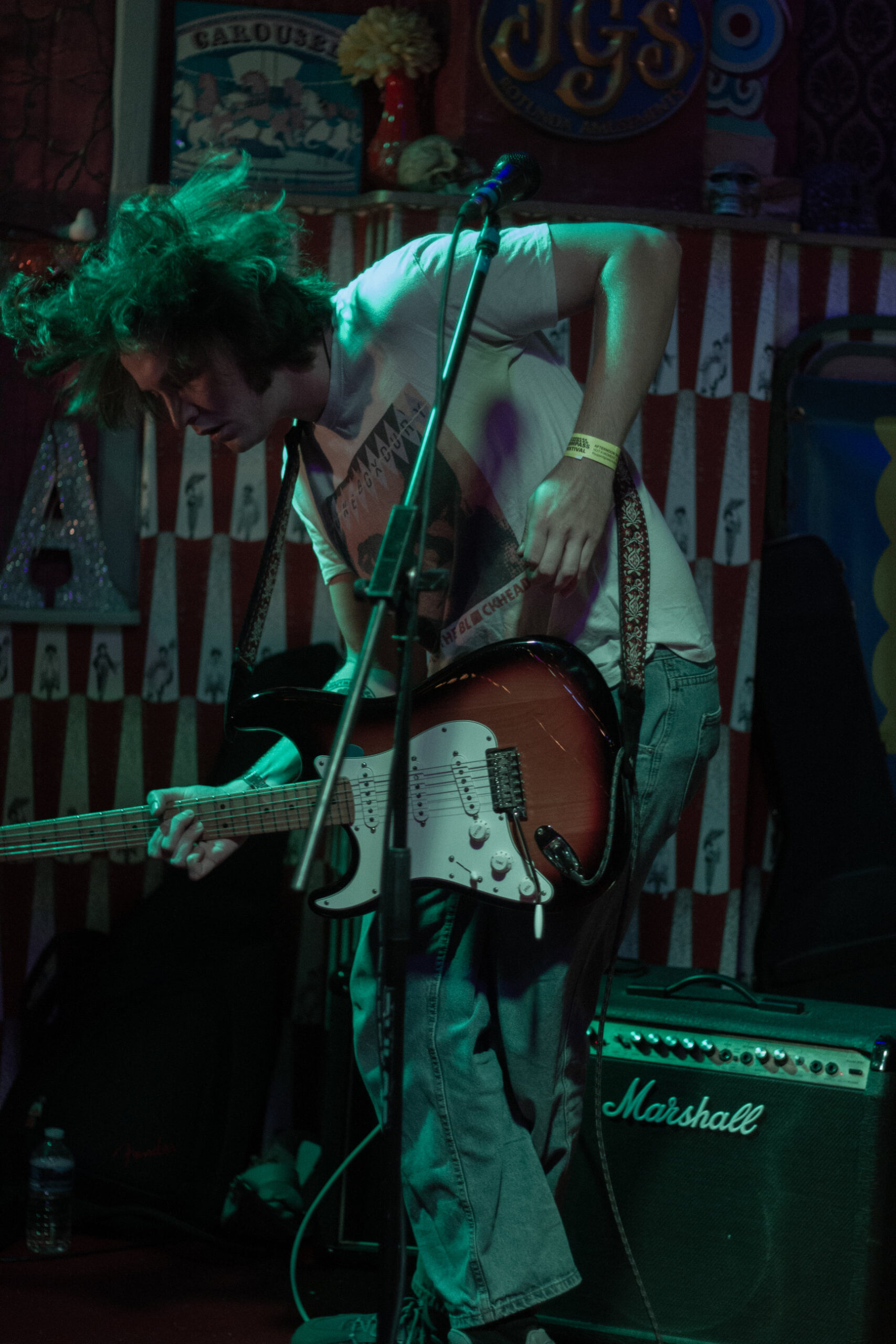
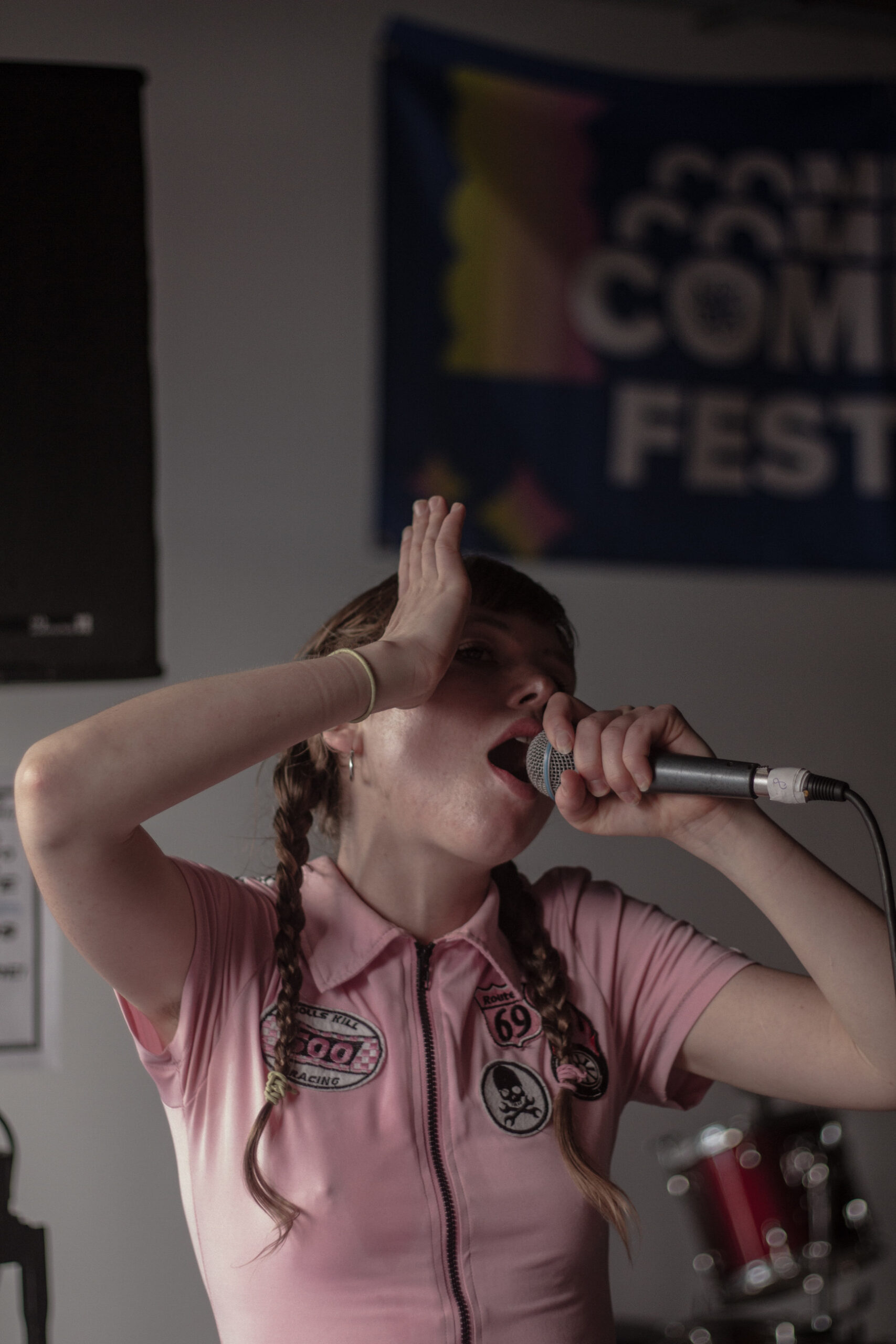
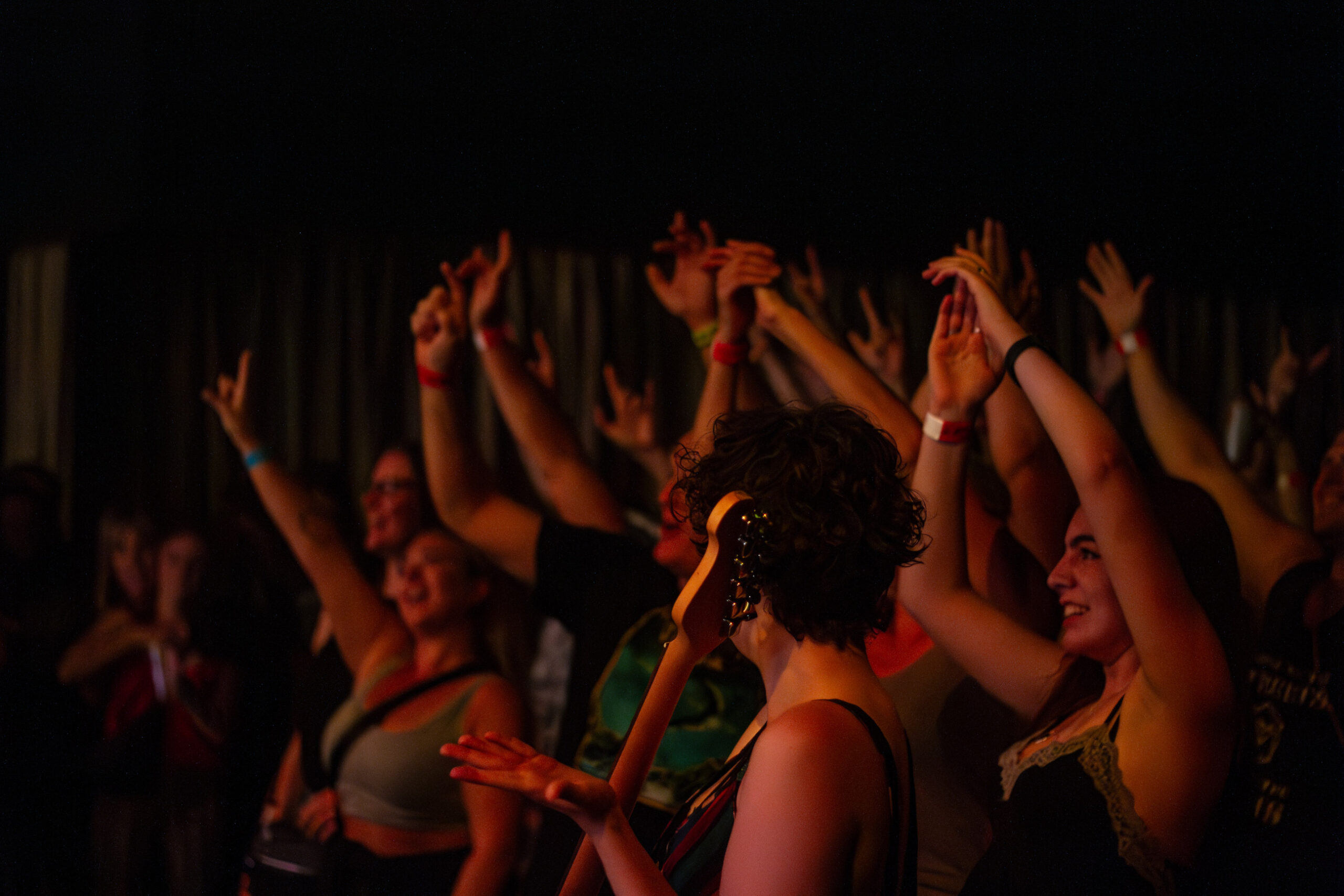
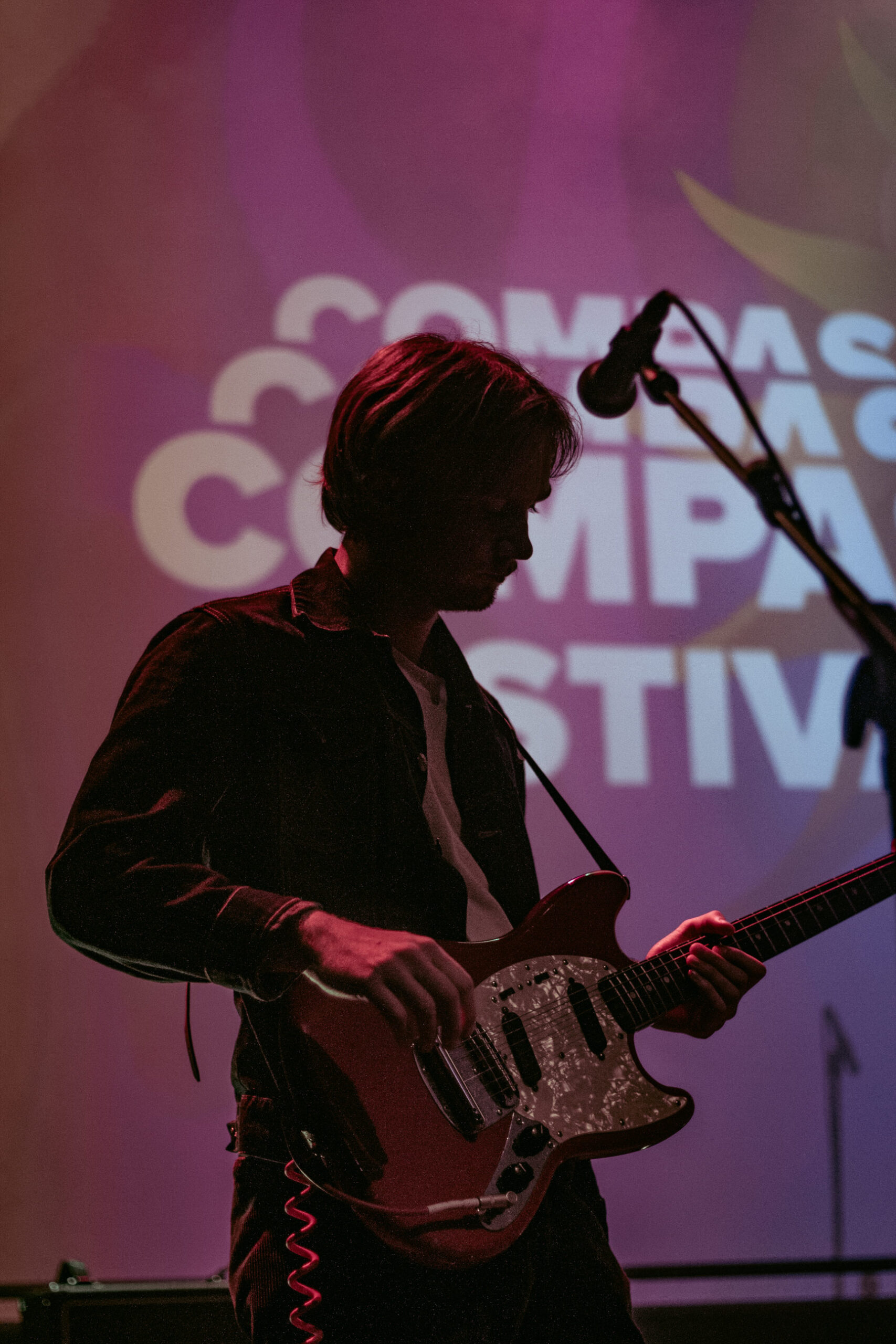
creative folkestone
“I am chronically ADHD and I have to give credit to Creative Folkestone whose grant application process is the most simple I have come across. It means that I can physically do it. So thanks to them we can put on a festival that means that musicians can get paid properly. I believe that music should be accessible, very much so, but not free. You need to appreciate the time and effort that goes into learning a musical instrument, and practicing songs and getting to gigs. It all costs money, and should be appreciated as such.
“We’ve got affordable tickets priced from £18 for the Friday, and £23 for the Saturday. There’s a pay-it-forward scheme too which then allows me to free up tickets for those who can’t afford a ticket.”
folkestone’s music scene
“Historically, the South East has always been lumped in with London in the music scene, and both are very different. London is a city, and then there’s so much variety across the South East. It used to be, back in 1995, that when you were on a tour, your band would have 20 gigs as part of that tour. If you were coming across from Europe to the UK, or vice-versa, playing in Folkestone was a very convenient gig. Nowadays, bands have about 8 gigs on their tour, and so Folkestone has been dropped off that list.
“So to be able to bring bands here, and record labels, managers and booking agents, they get to meet this incredibly welcoming crowd, and build back that scene here that’s been so important to Folkestone’s musical history.”
compass music
“This started as an idea when I used to live on a narrowboat in London. And I ran last year’s festival as a sole trader – which wasn’t a good idea! So, since June 2025, Compass Music is now a CIC (Community Interest Company), and we have four directors. I lead on the programming of the festival, my partner is the production manager, my friend Hannah is the creative director and graphic designer and my friend Ollie does the website. I have asked other friends to come in to help; Gemini and Cecily are helping with PR and marketing.
“We put out a call for volunteers to help with the festival this year and had 36 responses. We’re using everyone; a volunteering shift lasts about 5 hours and so that covers us for both the Friday and Saturday of the festival.”
supporting the local community
“Music is such an important part of a vibrant town. If people are out enjoying music, then they’re also buying food and drink too. Our venues range from being at The Clearing at Quarterhouse, the foyer at F51 Skate Park, to being in a local restaurant or bar such as Blackmarket or The Blind Pig. It’s going to be a good weekend for Folkestone, as the Triennial finishes then too. If people come for the art and then stay on for the music, that would be great. I have no doubt that others will come for the music and discover the art. It works both ways, and we should embrace this.
“Each gig is 45 minutes for a band, or 30 minutes for a solo artist. The idea is that you move between venues and discover music you might not have thought to listen to. Or pick one spot and stay there and see what you discover. You never know, you might just find your new favourite artists.”
Photos by Ellie Breeze
